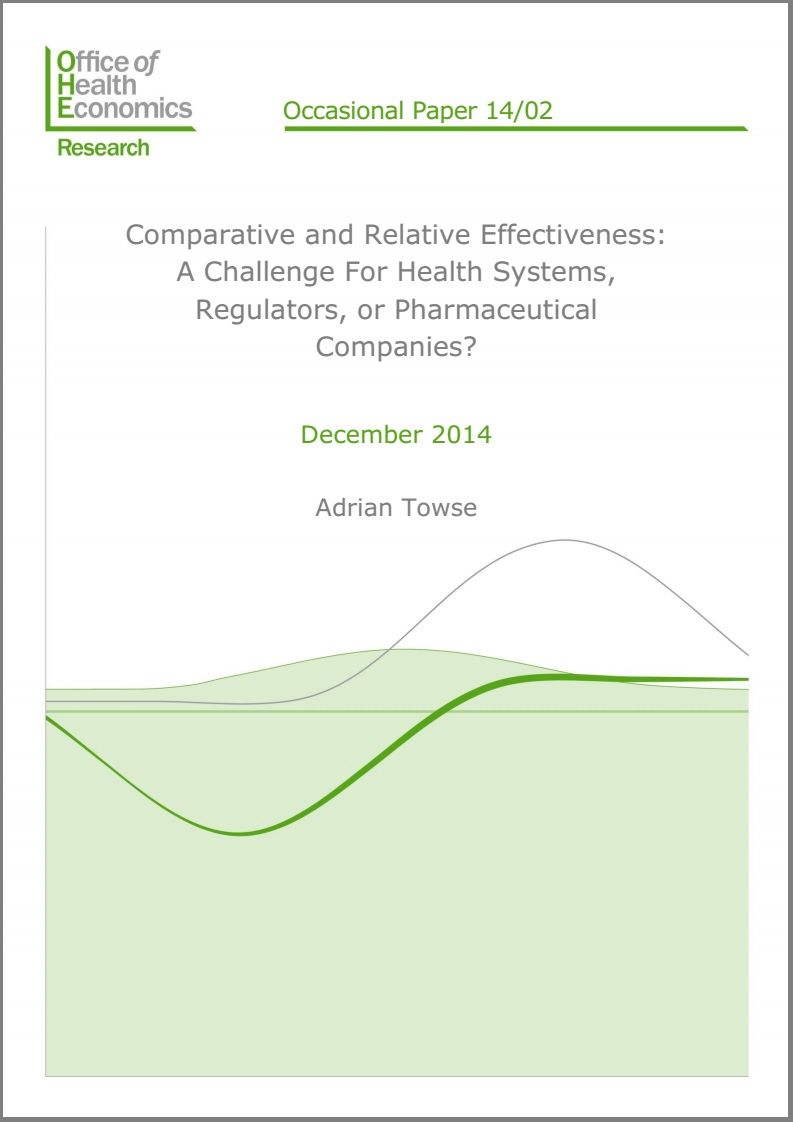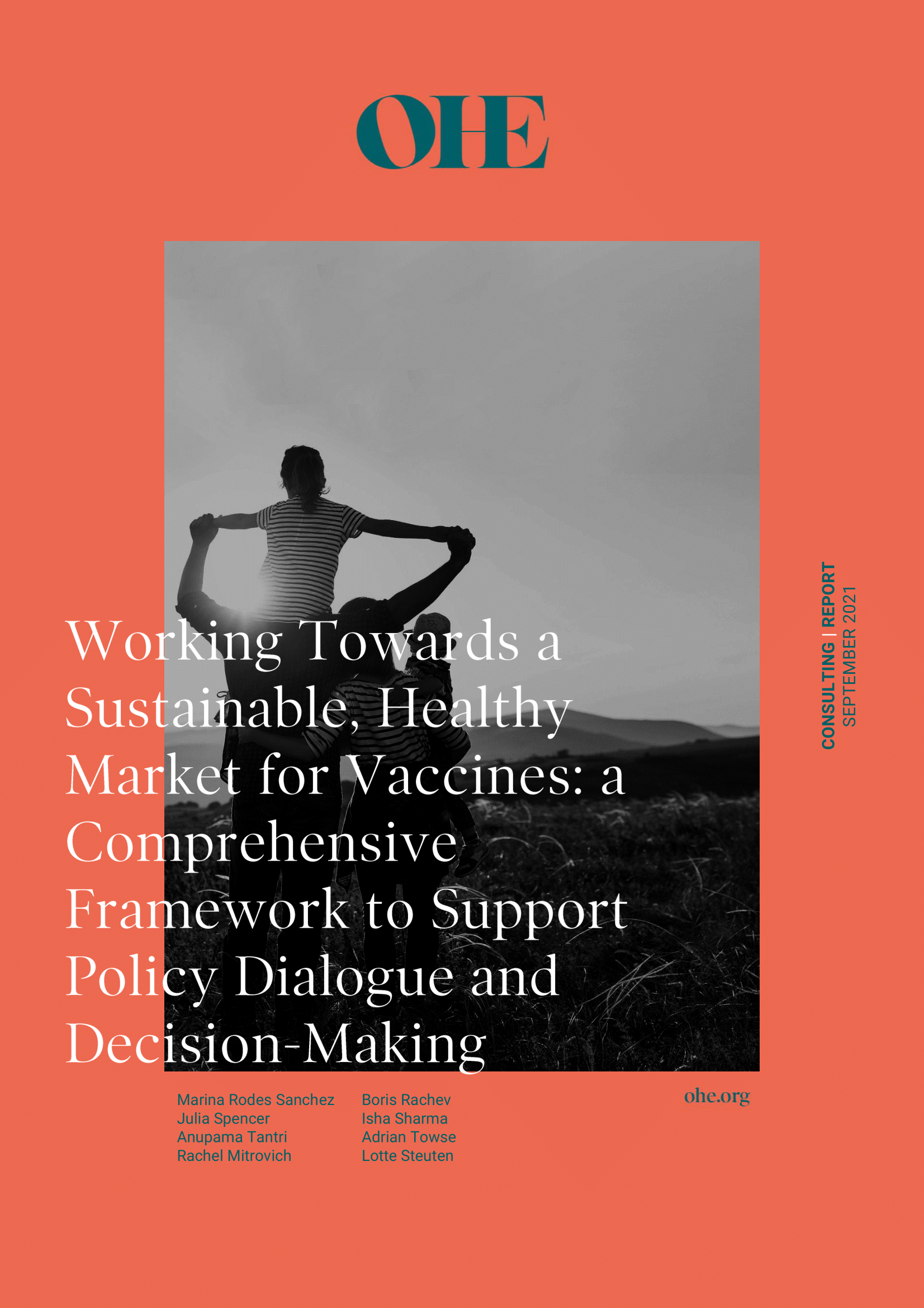Comparative and Relative Effectiveness: A Challenge For Health Systems, Regulators, or Pharmaceutical Companies?
This OHE Occasional Paper by Adrian Towse discusses Professor Bengt Jönsson’s observations in a 2011 publication about the role of relative effectiveness research (RE) in the European medicines market and how this could lead to improved efficiency in the development of medicines, the pricing and use of medicines, and of health systems.
This OHE Occasional Paper by Adrian Towse discusses Professor Bengt Jönsson’s observations in a 2011 publication about the role of relative effectiveness research (RE) in the European medicines market and how this could lead to improved efficiency in the development of medicines, the pricing and use of medicines, and of health systems.
This OHE Occasional Paper by Adrian Towse discusses Professor Bengt Jönsson’s observations in a 2011 publication about the role of relative effectiveness research (RE) in the European medicines market and how this could lead to improved efficiency in the development of medicines, the pricing and use of medicines, and of health systems. To ensure value for money, understanding actual use of medicines in the health care system is an essential supplement to information from clinical trials. To move in this direction, the author sets out the efficiency criteria that would need to be met. He defines a deceptively simple challenge: creating an environment where choice of therapy is based on an optimal amount of evidence from relative effectiveness research that is generated and used efficiently across health care systems both within Europe and as between the US and Europe. He identifies three sets of changes that must occur to meet the challenge:
1. A new drug development paradigm supported by regulatory authorities, HTA agencies and pharmaceutical companies that encourages the efficient collection of RE data before and after a medicine reaches the market.
2. Concerted efforts to eliminate the currently costly duplication across countries in infrastructure and RE-based assessments.
3. Understanding how and how well individual health systems use and benefit from new medicines, both to identify when expected differences mean country-specific RE may be needed and help identify instances where health systems use treatments inefficiently.
The author notes that ‘appraisal of RE evidence should edge both parties towards efficient pricing and use of a new drug on the assumption that pricing and use will reflect value and, as evidence of value changes, so will price and use.’ He believes EU reforms can encourage improved efficiency in various ways. He is somewhat less optimistic about trans-Atlantic convergence, although he argues that, ironically, convergence on the mutual use of CER/RE evidence could occur before convergence of FDA and EMA approaches to efficacy and relative efficacy.


